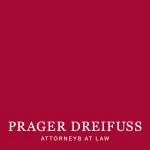1. What is the structure of the court system in respect of civil proceedings?
In principle, Switzerland has a three-tiered court system in private law matters: a district court acting as a court of first instance, a court of appeal or high court in the second instance and the Federal Supreme Court as the highest body of appeal. Further, there are specialised first instance courts such as labour courts or courts dealing with rental matters. Four cantons (Zurich, St. Gallen, Aargau and Berne) have set up specialised commercial courts. Judgments by these commercial courts, which constitute sections of the local high courts, can be appealed only to the Federal Supreme Court.
In Switzerland, civil litigation is usually preceded by a mandatory conciliation phase that generally takes place before the local conciliation authority of the commune in which the defendant resides. In some instances defined by statute, trial parties may approach the court directly and forgo the conciliation phase (see question 6).
2. What is the role of the judge in civil proceedings?
The judge in Swiss civil proceedings primarily has a case management role. The judge directs the proceedings and issues the required procedural orders. As a rule, the onus is on the parties (and their lawyers) to present the relevant facts to the judge. In all proceedings, the judge has the duty to enquire of his/her own accord, if a party's submission is unclear, contradictory, ambiguous or manifestly incomplete. The degree to which this needs to be done depends on the area of law and whether a party is professionally represented, in which case the court's duty to inquire is substantially lower.
However, in some areas of law, the judge has the duty to establish the facts ex officio (i.e. in family law cases with regard to child matters).
In Switzerland, the judges also apply the law ex officio. The court deals with claims by either not entering into the matter and not considering the merits or by making a decision on the merits itself and adjudicating the matter.
3. Are court hearings open to the public? Are court documents accessible to the public?
The majority of civil law proceedings and the delivery of judgments are accessible, unless public interests or the legitimate interests of the parties involved are overriding and require the proceedings to be held in camera. Conciliation hearings as well as judicial settlement hearings are not open to the public.
Copies of judgments by the courts, usually in an anonymised version, may be requested by the public. Most jurisprudence of the high courts and all of the Federal Supreme Court judgements since 2007 are published (see www.bger.ch/index/juridiction/jurisdiction-inherit -template/Copies of judgments by the courts, usually in an anonymised version, may be requested by the public. Most jurisprudence of the high courts and all of the Federal Supreme Court judgements since 2007 are published (see www. bger.ch/index/juridiction/jurisdiction-inherit -template/jurisdiction-recht.htm). However, all submissions by the parties, including the exhibits, are not open to the public. Compared to proceedings in common law jurisdictions, a higher degree of confidentiality is maintained.
The courts' deliberations are usually confidential. The parties are not privy to the discussion of the judges.
4. Do all lawyers have the right to appear in court and conduct proceedings on behalf of their client? If not, how is the legal profession structured?
Only attorneys registered with one of the cantonal attorney registers have the right to appear in Swiss courts. Once registered, they may conduct proceedings on behalf of their clients in all cantons. In order to register, the candidate attorney must pass a cantonal bar exam. European attorneys registered with an EU/EFTA attorney register also have the right to appear in a Swiss court on a temporary basis. European legal professionals registered with a cantonal register may appear in court on a permanent basis, provided they make use of their original European professional title. They can even register with a cantonal attorney register after either passing an exam or having worked actually and regularly as an attorney in Switzerland for three years.
5. What are the limitation periods for commencing civil claims?
Limitation periods form part of the substantive civil law. The general statutory limitation period for contractual claims is 10 years if the law does not provide otherwise (e.g. five years for periodic payments). Tort claims and claims for unjust enrichment become time-barred after one year. However, if a tort claim is derived from an offence for which criminal law envisages a longer limitation period, such longer period also applies to the tort claim. Usually, the courts observe limitation periods only if pleaded by the parties.
6. Are there any pre-action procedures with which the parties must comply before commencing proceedings?
If a conciliation hearing is required by law, the parties have to attend this hearing first. In certain instances, the Civil Procedure Code does away with the requirement of a prior conciliation hearing, i.e. in summary proceedings, some actions in connection with debt enforcement or if a single cantonal instance is competent to hear a matter, such as a commercial court. If the value of the dispute is CHF 100,000 or more, the parties can mutually agree to waive the preceding conciliation hearing. Furthermore, the claimant may waive conciliation and commence direct proceedings in court if the defendant's registered office or domicile is abroad or if the defendant's residence is unknown.
If a conciliation hearing is necessary, a party domiciled outside the canton or abroad is exempt from appearing in person and may send a representative.
7. What is the typical civil procedure and timetable for the steps necessary to bring the matter to trial?
Conciliation hearings, if required by law, should take place within two months of receipt of the claimant's application by the conciliation authority. If no agreement is reached during the conciliation hearing, the conciliation authority grants authorisation, usually to the claimant, to approach the first instance court. The claimant is then entitled to file the action and bring the matter to trial within three months. The claimant is of course free to submit the statement of claim earlier to speed up proceedings. After three months, the authorisation lapses. Nonetheless, this does not mean that the matter may not be brought to court eventually (no res iudicata effect). However, a claimant is required to recommence conciliation proceedings.
If no conciliation hearing is required by law, the matter is brought directly to trial by lodging a submission to the court of first instance, e.g. the district court or the commercial court.
8. Are parties required to disclose relevant documents to other parties and the court?
Disclosure is narrow under Swiss civil procedure law and is not comparable to similar obligations in proceedings in common law jurisdictions. In principle, trial parties and third parties have a statutory duty to co-operate with the court in the taking of evidence. The production of evidence is either ordered by the court or the parties can produce documents in their possession with their legal brief. A request to the court by a party to order the other party to disclose evidence such as documents will be granted only if the evidence sought is required to prove facts that are legally relevant, the claim has been substantially motivated by the requesting party and the evidence requested (e.g. a specific document) is sufficiently identified. As a rule, each party is well advised to rely on the evidence in their hands rather than hoping to find evidence in the hands of the counterparty.
9. Are there rules regarding privileged documents or any other rules which allow parties to not disclose certain documents?
A party may refuse to co-operate where the taking of evidence would expose a close associate, such as a direct relative or a spouse, to criminal prosecution or civil liability. Furthermore, co-operation may be refused if the disclosure would constitute a breach of professional confidentiality (e.g. attorney-client privilege). Under Swiss law there is no attorney-client privilege for in-house counsels, although patent attorneys working as in-house counsels do enjoy the attorney-client privilege.
10. Do parties exchange written evidence prior to trial or is evidence given orally? Do opponents have the right to cross-examine a witness?
As a rule, no evidence is exchanged prior to the trial, neither in written form nor orally. However, Swiss law knows the instrument of precautionary taking of evidence by the court before a matter is actually pending. This is possible if either the law grants the right to do so or the applicant shows credibly that the evidence is at risk or that it has a legitimate interest. If successfully pleaded, a party can obtain certain critical evidence that it can use to determine whether it wants to risk proceedings.
There is no comparable right to cross-examine a witness as in common law jurisdictions. Nevertheless, each party is allowed to put additional questions to a witness through the judge after the judge's initial interrogation. The court's examination of a witness is usually thorough.
Download >> LexisNexis Dispute Resolution Law Guide 2018
The content of this article is intended to provide a general guide to the subject matter. Specialist advice should be sought about your specific circumstances.



